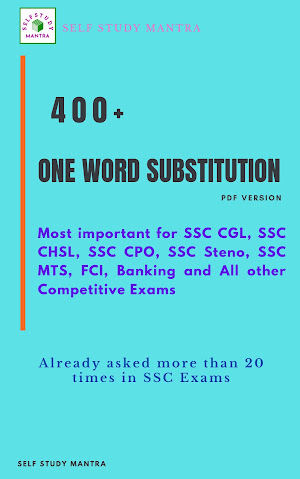Essay on Krishna Janmashtami: Krishna Janmashtami is one of the most famous festivals of Hindu which is celebrated in the Hindi month of Bhadrapada. Here we have written an essay on Krishna Janmashtami which is most important essay topic for school students.
Essay on Krishna Janmashtami 150 words
Krishna Janmashtami, also known as Gokulashtami, celebrates the birth of Lord Krishna, an incarnation of Lord Vishnu, who played a pivotal role in Hindu mythology. This festival falls on the eighth day of the Krishna Paksha (dark fortnight) in the month of Bhadrapada, according to the Hindu lunar calendar.
Devotees observe fasts, sing devotional songs, and offer prayers to Lord Krishna on this auspicious day. Temples are adorned with decorations, and reenactments of Krishna's childhood, known as "Dahi Handi," are performed. People form human pyramids to break pots of curd hung high in the air, symbolizing Krishna's playful nature.
The celebration showcases the divine and mischievous qualities of Krishna, emphasizing the importance of righteousness and devotion. It also signifies the victory of good over evil. The teachings of Lord Krishna, as elucidated in the Bhagavad Gita, continue to inspire millions around the world.
Essay on Krishna Janmashtami 250 words
Krishna Janmashtami, a prominent Hindu festival, commemorates the birth of Lord Krishna, an incarnation of Lord Vishnu. This festival is observed on the eighth day of the Krishna Paksha (dark fortnight) in the month of Bhadrapada, as per the Hindu lunar calendar.
Devotees celebrate this day with great zeal and enthusiasm. They engage in fasting, prayer, and singing of devotional songs. Temples and homes are adorned with flowers and lights, creating a festive atmosphere. One of the most iconic customs associated with Krishna Janmashtami is the "Dahi Handi" event. Participants form human pyramids to break pots filled with curd, butter, and milk, recreating Krishna's childhood antics of stealing dairy products.
Krishna's life and teachings hold profound significance. His role in the Mahabharata, particularly the teachings of the Bhagavad Gita, emphasizes the importance of duty, righteousness, and devotion. Janmashtami serves as a reminder of these values and their relevance in contemporary times.
The festival also highlights Krishna's multifaceted persona. He is revered as a divine being, a protector, and a playful child. This diversity is reflected in various rituals and celebrations associated with Janmashtami.
In essence, Krishna Janmashtami transcends religious boundaries and is celebrated by people of all ages and backgrounds. It spreads the message of love, unity, and the triumph of good over evil. The festivities foster a sense of community and spiritual reflection among devotees.
Also Read:
- Essay on Raksha Bandhan
- Essay on Diwali
- Essay Topics for Class 8
- Essay Topics for Class 7
- Essay Topics for Class 6
Essay on Krishna Janmashtami 500 words
Krishna Janmashtami, an integral facet of Hindu culture, is a joyous celebration that honors the birth of Lord Krishna, one of the most revered incarnations of Lord Vishnu. This auspicious festival falls on the eighth day of the Krishna Paksha (dark fortnight) in the month of Bhadrapada, according to the Hindu lunar calendar. The festival's significance is deeply intertwined with the life and teachings of Lord Krishna, making it a remarkable occasion for millions of devotees worldwide.
The festivities begin with devout observances. Devotees engage in fasting and meditation, focusing their minds on the divine presence of Lord Krishna. Temples and homes are meticulously adorned with vibrant decorations, reflecting the jubilation that surrounds the occasion. Intricate rangoli designs and floral arrangements further enhance the festive ambiance.
One of the most captivating aspects of Krishna Janmashtami is the enactment of Krishna's childhood episodes. Devotees engage in devotional singing and storytelling sessions, recounting tales of Krishna's divine interventions and his playful interactions with his loved ones. The enactment of the "Dahi Handi" episode is particularly enthralling. Participants form human pyramids, symbolizing the effort to reach the pot of butter hung high above, reminiscent of Krishna's youthful endeavors to steal butter. This event not only showcases the exuberant spirit of Krishna's childhood but also promotes teamwork, camaraderie, and perseverance.
Krishna's life and teachings hold profound philosophical insights. His discourse to Arjuna on duty, righteousness, and devotion in the Bhagavad Gita stands as a timeless guide for navigating life's challenges. Janmashtami serves as an opportunity for devotees to reflect on these teachings and integrate them into their lives. The festival underscores the importance of aligning one's actions with dharma (righteousness) and embracing a path of selfless service.
Furthermore, Krishna's multifaceted persona is celebrated during Janmashtami. He is adored as a divine lover, a mischievous child, a protector, and a supreme deity. This diversity is exemplified through various rituals and cultural performances. Devotees immerse themselves in devotional songs and dances, expressing their love and reverence for Krishna.
The universality of Krishna Janmashtami is remarkable. It transcends religious boundaries and resonates with people of various faiths and backgrounds. The festival exemplifies the universal themes of love, unity, and the ultimate triumph of good over evil. It fosters a sense of camaraderie and spiritual connectedness among devotees, fostering a feeling of oneness beyond societal divisions.
In conclusion, Krishna Janmashtami is more than a religious observance; it is a cultural phenomenon that encapsulates the essence of devotion, righteousness, and celebration. The festivities not only pay homage to Lord Krishna's birth but also rekindle the teachings he imparted to humanity. As devotees come together to celebrate this joyous occasion, they are reminded of the eternal wisdom found in Krishna's words and deeds. Janmashtami's enduring significance lies in its ability to inspire individuals to lead lives rooted in virtue, compassion, and spiritual growth.
Hope you liked these essays on Krishna Janmashtami and it helped you understanding this famous festival. In addition to this Essay on Krishna Janmashtami you can read other important essay from here.
Tags: Essay on Krishna Janmashtami, Krishna Janmashtami Essay






















0 Comments